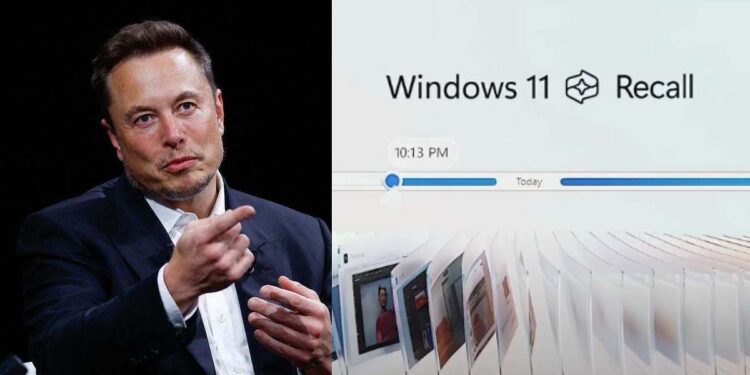Windows is back. Microsoft’s operating system announced this week its new ARM computers, which promise to give them a performance boost and a bunch of artificial intelligence functionalities. Among them, one called ‘Recall’ that allows AI to read your on-screen activity so you don’t miss anything.
The use case? For example, being able to recall what pages we have visited, what text we have copied, and ultimately, what we have done to see, for instance, where we have made a mistake. The AI saves it, and can tell us where we got lost.
It may seem magical, but it can also be a bit frightening to feel ‘observed’. Elon Musk is one of these.
“It looks like Black Mirror”
Announced by its CEO, Satya Nadella, this feature takes continuous screenshots to offer a kind of photographic memory, making it easier to access the user’s entire history on the device.
The idea is for this tool to increase productivity by allowing you to remember and understand every action taken on the computer.
Elon Musk, through his X account, stated: “This is a Black Mirror episode. I will definitely disable this ‘function'”. The reference to “Black Mirror”, the Netflix series known for its dark visions of the technological future, makes his skepticism and concern about the privacy implications of this tool clear.
The tip of the iceberg of Windows’ Copilot+
The announcement of Recall has generated great interest and concern. In the presentation video, Nadella explains how this tool uses semantic searches to recreate past user moments, making it easier to locate information and improve productivity. Recall will be integrated into PCs along with Copilot, another AI tool that succeeded Cortana, Microsoft’s voice assistant.
The public reaction has been swift, with many voices expressing serious privacy concerns. Comments on social media reflected a mixture of skepticism and rejection. One user commented: “I don’t need to pay a monthly fee to Microsoft to spy on me”. Others criticized the functionality and practicality of Recall, recalling past issues with Windows and its data handling.
In response to the wave of criticism, Microsoft tried to calm the waters by ensuring that all data captured by Recall would be stored locally on the user’s device. In addition, users will be able to delete individual snapshots, adjust or delete time ranges, and pause the function from the system tray in the taskbar. Microsoft has also ensured the implementation of robust privacy settings to maintain control over the data.


